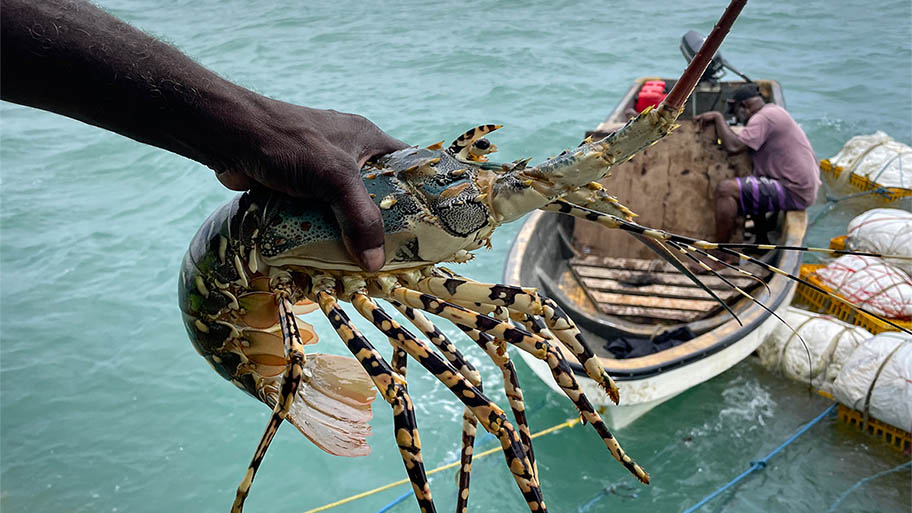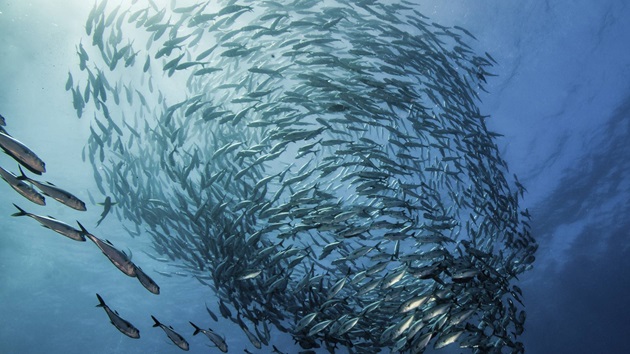Papua New Guinea's free diving rock lobster fishers harvest their catch by hand. Their traditional, selective technique has helped their fishery to become the island nation’s first to achieve certification for sustainability.
Hailing from Daru Island, the fishery is a small enterprise comprised of just seven boats, each with around six fishers
onboard. The fishers dive in the Torres Strait, holding their breath or using hookahs that supply surface air via a hose.
The fishery’s artisanal approach ensured it scored highly when assessed for sustainability against the MSC Fisheries Standard in late 2023. The Standard requires fisheries to ensure stocks are healthy. As the fishers hand-select each lobster, they can identify and leave enough mature lobsters to replenish the stock.
The Standard also requires that fisheries have minimal impacts on the surrounding environment. Again, hand harvesting is effective here as it eliminates the danger of bycatch and discards. And with no fishing gear, the impact on habitats and ecosystems is low.

To meet the Standard the fishery must also demonstrate effective management. This includes monitoring and adapting to changing circumstances. Small, artisanal fisheries often find these requirements the most challenging.
By working closely with scientists, government and experienced assessors, the fishery overcame these challenges. In fact, when graded for its harvest strategy and control rules, the scores were just shy of ‘state of the art’.
Marcelo Hidalgo, Sustainability Director of the Fishing Industry Association in Papua New Guinea, said, “This first-ever small-scale fishery in the Western and Central Pacific shows our commitment to sustainable fishing in Papua New Guinea to the world.”
Though remote, the fishery currently exports its tropical rock lobsters to China, Hong Kong, Thailand, Vietnam and Australia. They hope the assurance of the MSC label will now open markets in Singapore and as far afield as Europe.
Hidalgo continued, “This is part of our responsible sourcing policy and commitment to improving the small-scale fishery’s management plan, providing guaranteed livelihoods in the future... And at the same time we expect to place this valued commodity directly in consumer markets."
The Daru Island community expects to gain much economic benefit from the certification, and with their commitment to preserving their ocean ecosystems, the Torres Strait fishers can continue their long-lived fishing traditions.
Images © Marcelo Hidalgo


